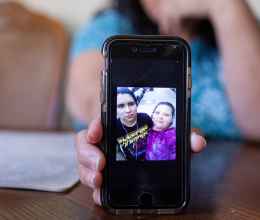
Today, the United States Supreme Court granted certiorari in Anderson vs Roe, California's challenge to the January 28 Ninth Circuit Court decision upholding the June 4, 1997 District Court ruling blocking California from reducing the public benefits of eligible new state residents. The January Ninth Circuit ruling was the first Circuit Court decision stopping a state from using the 1996 Personal Responsibility and Work Opportunity Reconciliation Act to cut the benefits of new residents.
The Supreme Court is expected to hear oral arguments in Anderson vs Roe in January 1999. The ACLU of Southern California, the ACLU of Northern California and the ACLU of San Diego and Imperial Counties represent defendants in this challenge along with the NOW Legal Defense and Education Fund and the Western Center on Law and Poverty. This is California's second attempt to reduce welfare benefits to women and children, many of whom are fleeing domestic violence in their states of origin.
Governor Wilson first tried to cut the benefits of new arrivals with a waiver from the Bush Administration in 1992, a scheme the ACLU of Southern California challenged in Green vs Anderson. The District Court declared that proposed policy unconstitutional in 1993 and the Ninth Circuit upheld the decision in 1994. The Supreme Court dismissed California's appeal in February 1997.
ACLU/SC legal director Mark Rosenbaum who will deliver oral arguments before the Court in this case next January said, "This case will decide whether our constitution treats newcomers as bonafide citizens. The Court's decision will affect women and children who come to California seeking to rebuild their lives, but who are met by a governor trying to set up a two-tier system to penalize them for being victims of violence and abuse. That is tragically unsound given California's extraordinarily high cost of living. His cruel scheme failed before the Court before and we expect it to fail now. California cannot detach itself from the union just to keep out poor people seeking a better life."
Judge David Levi issued a preliminary injunction in Doe vs Anderson in June of 1997. The judge said that California may not institute laws that thwart the Equal Protection Clause of the 14th Amendment by treating new state residents differently from longer-term residents. The Ninth Circuit upheld that decision in January of this year, stopping Governor Wilson from reducing public assistance benefits to qualified families who have lived here for less than one year to the amount they would have received in the state they left.
If California is allowed to reduce benefits to new residents to the amount they would have received in their state of origin, a family of four from Mississippi, for example, would receive $144 a month rather than California's allotment of $673.
Martha Davis, legal director of the NOW Legal Defense and Education Fund said, "This is a pivotal case for women fleeing domestic abuse, who are forced to move across state lines in order to avoid stalking and violence. Our constitution guarantees that women in this situation must be treated like all other California residents."





